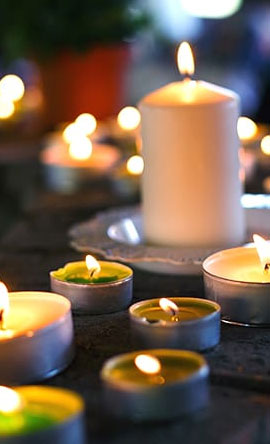Funeral Directors Plymouth
Saltash ~ Plymouth ~ South Hams
James Brothers Funeral Dierectors offer a
professional funeral planning service from a caring
and reliable team, established for over 150 years.
James Brothers Funeral Directors Plymouth
What to do when a loved one dies
When a loved one dies, whether it is suddenly or after a long illness it falls on those close to them to arrange the funeral. It is a very emotional and stressful time, and there are many things that needed to be sorted out. Your funeral director is there to help you through the process, and should be able to help with most things, but there are a few things that you will need to do.
Firstly choose a Funeral Director. If the person passes away in a nursing home or in hospital they will need to know which director will be taking care of them, so when the inevitable happens they know who to call.
Where do i get the medical certificate
The Medical Certificate is a form completed by the deceased’s GP or medical practitioner who was attending at the time of death. This is forwarded to the Medical Examiner.
How do i register the death
All deaths are now reviewed by either the local Medical Examiner or the Coroner. Registration cannot take place until the informant (usually next of kin or person arranging the funeral) has been contacted by the Medical Examiner or the Coroner. Once this contact has taken place, the informant can contact the Registry Office to make an appointment.
• Some Registry Offices might contact you.
Is it different if the death is at home or in a hospital
At Home – As soon as is possible, the death must be reported to a doctor. During surgery hours this should be the surgery the deceased is registered with. Otherwise, the local out-of-hours service should be contacted (Devon Doctors). Sometimes this might be carried out by someone other than the doctor if they are qualified to confirm death. (There might be people present who will call on your behalf – carers, friends, family). It is worth noting doctors can take a bit of time to attend.
In Hospital – The doctors in the hospital carry out the process and will forward relevant papers to the Medical Examiner.
Coroner – In some cases, nominally unexpected death or suspicious circumstances, the deceased will be referred to the coroner. In this case, the doctors will not release the Medical Certificate, and it will be forwarded to the Coroner.
What is has to be done to register the death
Who can register the death?
- Close relative of deceased
- Relative in attendance during last illness
- A relative living in the district where death occurred
- A person present at death
- A partner. *
- Personal representative of the deceased. **
* A person is the partner of the deceased person if the two of them (whether of different sexes or the same sex) were living as partners in an enduring relationship at the time of the deceased persons death.
** This will be a person appointed by and acting on behalf of the family, including a solicitor, family friend or funeral director.
What Documents are required?
- Medical Certificate of Death – now forwarded directly to the Registry Office by doctors
- Medical Card if available
- Birth Certificate & information regarding date of birth
Information required to Register
- Date and place of death
- Full name of deceased (maiden name if applicable)
- Date and place of birth
- Occupation and home address
- If married, full name and occupation of surviving spouse
Certificates
Disposal Certificate for the funeral director (The Green Form)
Social Security Certificate to be handed to DSS offices with any pension documents.
Copies of Death Certificate for bank, insurance; solicitors.
In some cases it is necessary for the Corner to become involved. NNormally, this is the case if the person has died suddenly and without seeing their regular doctor within two weeks, if there is something unusual about the death, or if the person has died in unnatural circumstances – through an accident or an illness that might be related to their profession, or in the case of a life being purposefully taken.

